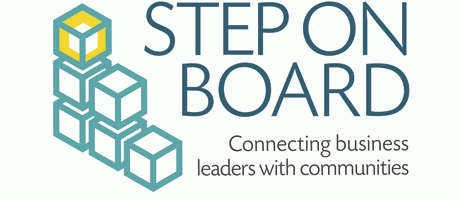
There is a lot of wall painting and tree planting going on in employer supported volunteering. This is good for team building, for immediate (and visual!) impact. It is not so good if a lasting effect, or dare we say sustainability, is the aim. Plus, there are only so many walls to paint and so many trees to plant. We hear time and again from charities desperately trying to divert corporate partners from their interest in this type of one-off activity when what they’re really crying out for is more skills-based volunteering. What if only 5% of staff at large corporate organisations were to volunteer their skills to help charities run themselves better? What if charities got better at business development and strategic planning as a result of the support they received? How much more income could they generate and how many more beneficiaries could they help?
Take trustees, for instance – they are volunteers responsible for making sure the charity is doing what it was set up to do; they are the people who lead the charity and decide how it is run; they make decisions that will impact on people’s lives. Currently, there are over 160,000 registered charities in the UK, with 800,000 staff and over 14 million volunteers and yet an estimated one in five charitable organisations has a trustee vacancy on their boards. What if we could fill those vacancies with experienced professionals with sound leadership, negotiation and business development skills? What if those professionals could volunteer in this way for a cause close to their heart? What if they could also gain valuable non-executive board experience in the process?
Step on Board
This is how Step on Board, a partnership between NCVO (the National Council for Voluntary Organisations) and Trustees Unlimited, came about. It is a comprehensive and tailor-made volunteering programme that connects business leaders with communities by training and placing skilled professionals onto charity boards. It is one of the most effective ways to engage aspiring leaders and senior staff in an organisation, and provides unparalleled experience for those hoping to become non-executive directors on company boards.
Through one-to-one coaching sessions and interactive workshops, Step on Board prepares potential trustees to be ‘board ready’ from day one. The sessions enable prospective trustees to quickly grasp what charities need from trustees, how the charitable sector operates, the role and responsibilities of trustees and the contribution they’re expected to make. Candidates are then offered trustee opportunities that match their interests and skills. Once the position has been secured they can receive ongoing training and mentoring to ensure that they are maximising their impact and feel confident in their role. We can then measure the impact of the programme at three levels: the charity, the business and the individual.
It’s a completely new approach to professional development and arguably so much more effective when compared to traditional styles of management training. Having to sit at a table with ten other trustees from all walks of life and agree on decisions that will affect the direction of a charity and, thus, the lives of those it supports…well, you don’t learn that in traditional CPD courses.
And then, of course, there is also the employee engagement benefit. Why would you not want to be loyal to an employer that takes you beyond the traditional avenues of leadership training and encourages you to develop new skills and competencies, that respects your values and the causes you care about.
What real impact looks like
Employers from the likes of Barclays and Mischon de Reya are already reaping the rewards of Step on Board with over fifty employees already placed on charity boards. That’s fifty skilled professionals making an impact as we speak in fifty different charities. Fifty employees who are using the skills and experience they’ve gained on the board back in their offices. Many more are needed.
Of course, Step on Board is not the only programme that delivers meaningful impact and value to businesses and communities. There are many alternatives out there that don’t involve wall painting; that encourage partnership working and mobilisation of people’s skills, knowledge and expertise. If we are to address some of the most significant challenges we face in our communities we need less of the former and more of the latter.














